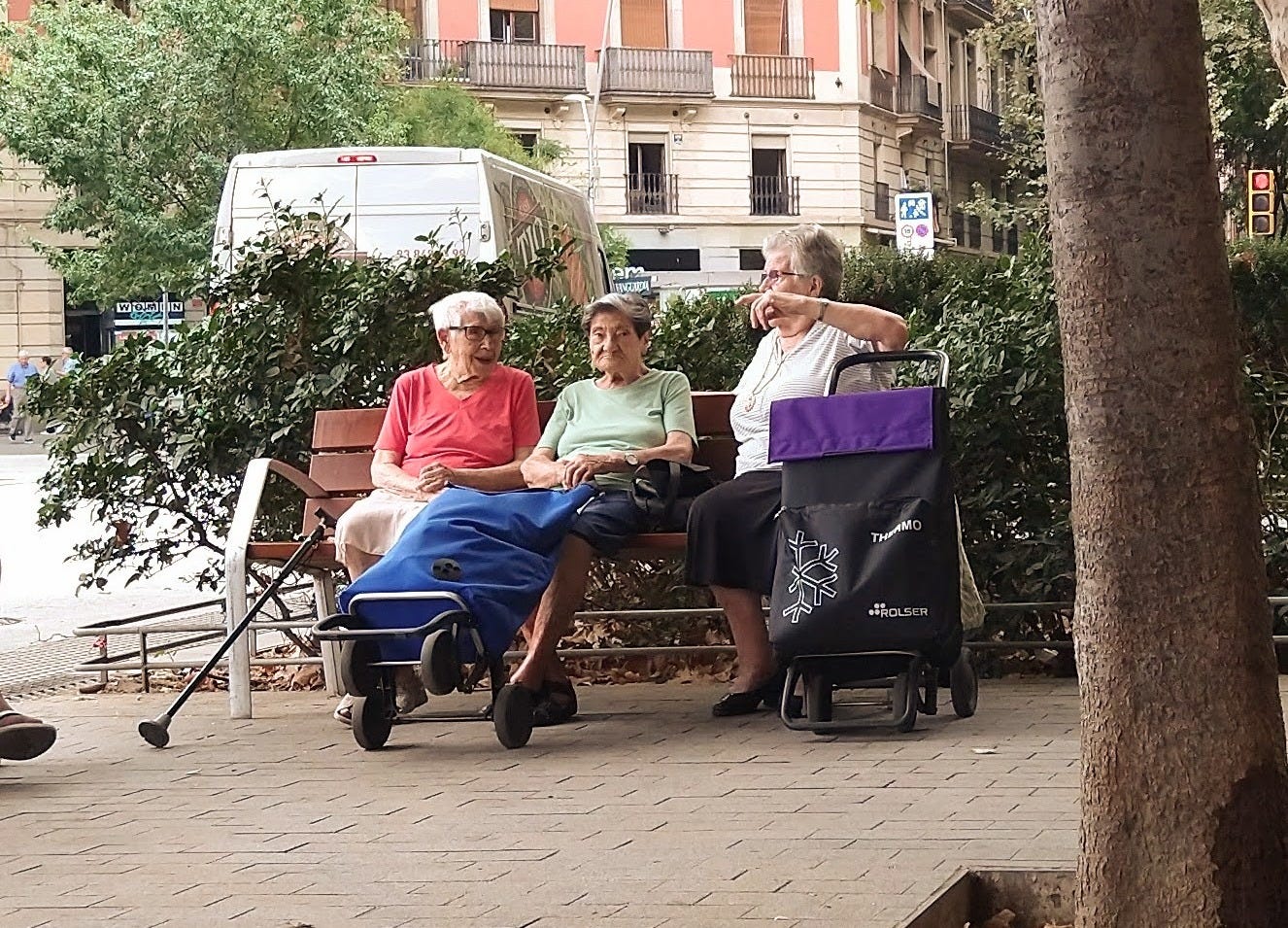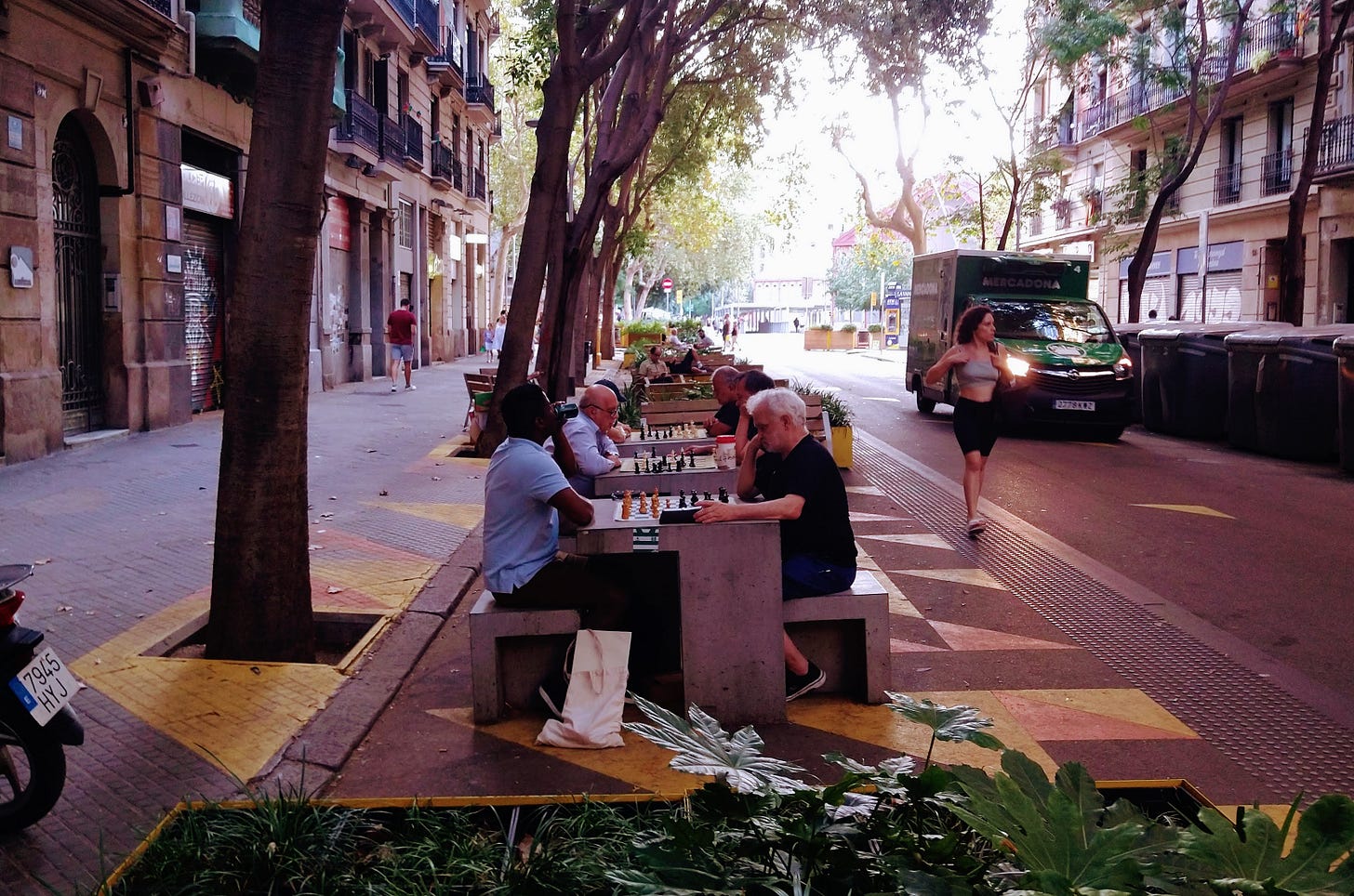Greetings from Rumney, New Hampshire—
I maintain there is no better place in the world for a climber to be in October than here.
Crisp air, cool temps, and oh, the leaves—it is a magical thing to be surrounded by every shade of orange and red as you climb a cliff, and to top out a route and look down on the Baker River Valley spread below, the river winding its way between hills cascading in color, and to simply know that there is no more beautiful place in the world to be doing the thing you love than right here, right now.
To feel strong in your body in such conditions is a glorious thing. I’ve been climbing outdoors three, sometimes four times a week since August. Latched into cracks, the tendons in the fingers strengthen. Dangling horizontally beneath steep roofs, the muscles in the core all tighten. Pulling on so much rock so often, the shoulders, arms, and back become lean.
At 42, I am climbing close to as strong as I ever have. And it is a great pleasure to know that soon I will return to Spain where I will be able to continue this climbing life. I’ll skip the long New Hampshire winter, and will resume work on the renovation in Cornudella de Montsant full time.
Still, there is a sadness to leaving. I will miss my friends here.
Europe could fix you, actually
A few months ago I saved Elizabeth’s wonderful piece from Elizabeth.Ink (“Europe Won’t Fix You”) about an American friend who bought a crumbling stone farmhouse in Italy, hoping to devote his life to the renovation—at the same time when his Italian girlfriend wanted nothing more than to go back to Washington D.C. to pursue a long-worked-for career in counter-terrorism.
Sitting inside a “vine-draped pergola in the backyard of my friend’s parent’s villa,” Elizabeth writes, she could tell the girlfriend’s father wanted her to go for the job and the career back in the U.S.:
That’s because father and daughter had seen what befalls men like my friend—afternoons spent at the local bar, weeks and years wasted on a project that needs a job to fund it, a life full of big talk strangled by inaction. His American fantasy was their Italian nightmare.
A cottage industry sells the dream of moving to Europe as a cure for all the ills of modern American life. The truth is significantly more complicated.
Like so many Eat, Pray lovers who’ve come after him, my American friend was using foreign cultures and people to fix him. Just one more of the untold alcoholics, lost souls, and troubled ex-pats I’ve met during my decades abroad—most of them running from something, rarely to anything.
Americans who came to Europe as an experiment, for a long-out-of-the-picture boyfriend or girlfriend, for a job teaching English, or to fix up a crumbling farmhouse—they all came for a dream. When that dream faded—because real life was hard and even more complex in a foreign country—if they had something to go home to, they did.
Replace Italy with Spain, and farmhouse with townhouse, and she could be talking about me.
When I bought the crumbling stone house in Cornudella de Montsant last year, I knew, in some sense, that I was chasing a dream (and wrote as much at the time).
I purchased the property in the aftermath of a 10-year relationship, so I was aware the danger that perhaps I was living out my own Eat Pray Love story.
It’s interesting to go back to what I wrote in December 2022, when I was newly under contract on the property:
There’s a movie version of what happens next, a story I could construct in my imagination: in the aftermath of the breakup, I buy the property anyway and do the work myself, sweat and tears dripping onto the old stones, cleansing both myself and the centuries-old grime along with it. I meet the locals and learn the history of the town. I face setbacks, but my new Spanish friends help me overcome them. The renovation is a metaphor for rebuilding my life, and ultimately I realize that happiness and satisfaction come not from having a partner to share in the experience, but from within, or at least from a hammer and a saw and chisel. After a year of toil and a good long montage of me doing carpentry, I finish the renovation. In the final scene, having polished the last of the grime, I walk to the nearby cafe down the hill. I order a coffee and sit at a small, round table in the corner, pausing for a satisfying moment of silence to think about life hurdles overcome, and the next dream to pursue. Cue music, roll credits.
I believe Elizabeth is right that we can’t escape our demons simply by moving to Europe. I’m sure it’s also true that many Americans come with a dream, the same one I had, and eventually crawl back to where they came from when they find that living in another country, culture, and language is super hard.
Elizabeth’s warning—“a life full of big talk strangled by inaction”—is never far from my mind.
Yet I move forward, poco and poco. Life in Spain is hard. I failed my Spanish driver’s license test. I wrestled with the often maddening Spanish bureaucracy. I went through a language-learning valley of despair.
Perhaps I am that rare sanguine personality type who smiles through this kind of adversity (after the requisite moments of frustration and cursing and pulling my hair out… my beard is certainly a bit more gray than it was a year ago).
Yet the potential for a very high quality of life in Spain at lower income thresholds is unquestionably superior to the United States and likely superior to most countries in the world. For all I wrote last year about my frustrations, I wrote much more about that quality: finding my community of climbers, the many sensual charms of Barcelona, day drinking and endless croissants, the sheer beauty of the city at Christmastime, and many more deep pleasures that I could never have found in such high concentration anywhere else.
One simply doesn’t need much money to live an extraordinarily beautiful life in Spain, one that feels rich in all the ways that truly matter.
And THIS is where I diverge from Elizabeth: moving to Europe actually could fix you because where you live has an enormous impact on your physical, emotional, and social health. Europe just has a high concentration of places with the right conditions. Spain famously has one of the longest lifespans in the world1, which most attribute to strong social connections as people age.
My elders in the U.S. spend much of their time alone or otherwise connected through screens. Elders in Spain are to be found at all hours of day and night sharing a beer or a coffee with friends outside, on a patio, and parents as well, sometimes with the children playing in the plazas nearby. This is true in the city and in the country alike.
As Johann Hari wrote in Lost Connections, many of the root causes of depression are not a matter of brain chemistry per se but are rather fundamentally environmental. We feel lonely, lost, and disconnected because of a lack of connection: to our friends, family, loved ones, our work, and yes to the places we live.
Moving to another place, be it Europe or wherever, can change the conditions of your life such that there is more possibility for more of the things that matter. It just so happens that many countries in Europe have organized their societies less around wealth creation or entrepreneurship, and more around social connection and peace of mind.
And maybe you prefer to optimize for wealth creation, or building a business! As Elizabeth notes, there are always trade-offs, and one shouldn’t be surprised if someone from Europe might prefer to live in the U.S.:
As you contemplate your move, it might be worth noting that most people in that tiny Tuscan village of your dreams would kill to have a US passport and access to all the opportunities you can’t wait to get away from. Just look at the unemployment rate in Europe, and you’ll see what I mean.
I am extremely privileged to have U.S. income but with the freedom to live in Europe. Sometimes I feel that I have unlocked a massive life hack. As Scott Galloway (Prof G) often says, the U.S. is the best place to make money and Europe is the best place to spend it.
It’s not that a life rich in all the things that give us meaning is impossible in the U.S.—it’s just that that’s not what America is optimized for. Spain, on the other hand, well… Come buy an old stone ruin and see for yourself.
You might indeed end up spending your afternoons at a local bar, a life of big talk strangled by inaction passing you by—but I promise you will have company at the bar for as long as you want to talk about it.





Couldn’t agree with your take more. I would submit that nobody really needs to move to Europe to fix them because people aren’t broken — the system they are leaving is broken.
I’ve lost track of how many people moved out of the United States and no longer need to take something to sleep, or need to take anti-depressants. It’s almost like there was nothing wrong with them in the first place, but they were living in a totally toxic environment, where they didn’t get enough sleep and we’re working all the time to just survive which can make a person very depressed.
If you’re a totally miserable person, no matter what then obviously moving won’t help you, but I haven’t encountered a single person who is like that who has moved to Europe
I fully second this. When moving to Spain from the US, via Germany, I knew I wasn't moving here for my career. In fact, both my career path and my finances took a steep dive and I needed *years* to recover to previous levels of earning. But the life lived in Spain is not comparable to anywhere else. I'm not sure if (all of) Europe could fix you, but certainly Southern Europe could fix you. 😊